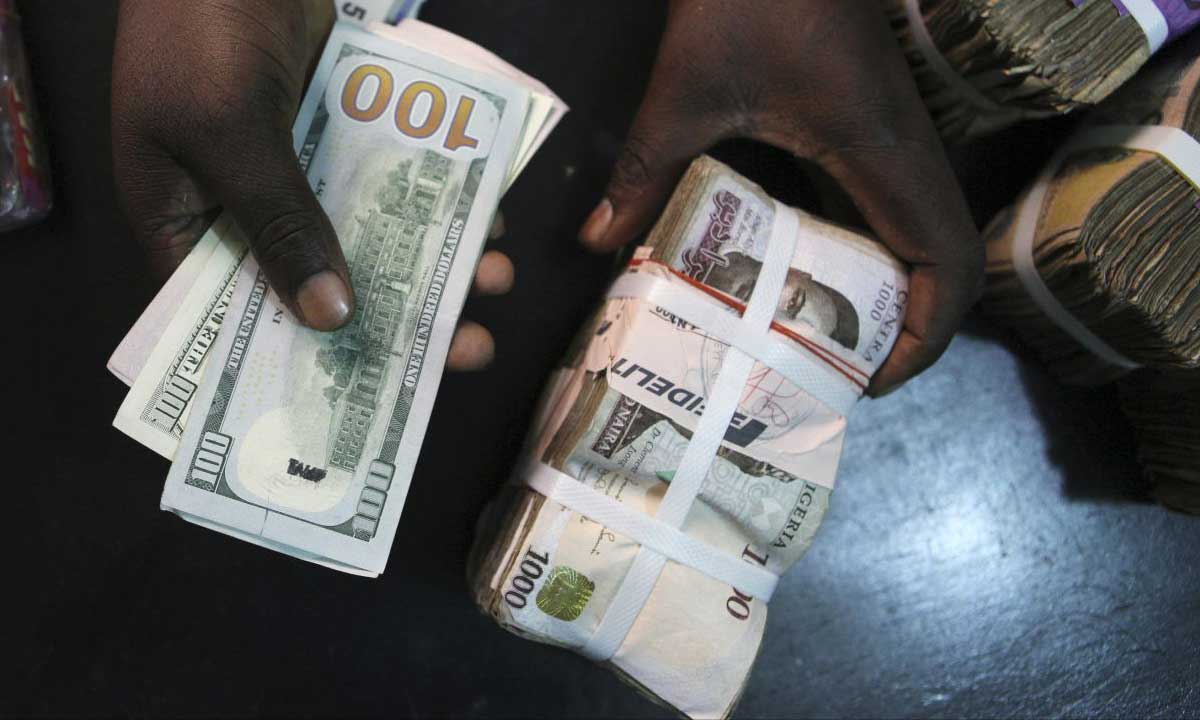The naira continued its slide against the U.S. dollar in the official foreign exchange market on Tuesday, October 22, 2024, trading at N1,653.02/$1, according to data from the Nigerian Autonomous Foreign Exchange Market (NAFEM).
This marks a depreciation of N49.86 from Monday’s rate of N1,603.16/$1.
While the official market saw the naira weaken, it remained flat in the parallel market, holding steady at N1,725/$1, the same rate as the previous day. Against other major currencies, the naira’s performance was mixed.
It gained N10 against the British pound, trading at N2,250/£1, while losing N10 against the euro, closing at ₦1,860/€1. The currency remained stable against the Canadian dollar at N1,300/CA$1.
Financial analysts attribute the naira’s continued depreciation to a combination of weak foreign exchange reserves, high inflation, and ongoing economic uncertainties.
Chike Obi, an economist at Lagos Business School, warned that the pressure on the naira is unlikely to ease soon without significant intervention from the Central Bank of Nigeria (CBN).
“The sharp drop to N1,653.02/$1 is concerning, especially given the persistent gap between the official and parallel market rates. It reflects underlying supply shortages of dollars and the dwindling confidence in the economy,” Obi said.
READ ALSO: Naira dips to N1,603.16/$1 amid depreciation pressure, experts warn of rising dollar demand
Another expert, Muda Yusuf, CEO of the Centre for the Promotion of Private Enterprise, explained that the declining value of the naira is being exacerbated by limited foreign exchange inflows.
“Foreign investment is hesitant due to the lack of policy clarity, and remittances have not been sufficient to support the naira,” Yusuf stated.
The currency’s weakening against the U.S. dollar poses challenges for businesses and consumers alike, especially with Nigeria’s heavy reliance on imports. With import costs rising, inflationary pressures are expected to increase, further straining households and businesses.
Despite the gain of N10 against the British pound, economists stress that the larger picture points to a vulnerable naira. The currency’s stability in the parallel market, currently at N1,725/$1, offers little relief, as it remains significantly devalued from previous years.
A sustained slide in the naira’s value could lead to higher borrowing costs for the government and worsen Nigeria’s debt profile, cautioned Bismarck Rewane, Managing Director of Financial Derivatives Company.
The CBN has so far struggled to stabilize the currency, and calls for policy reforms continue to grow louder. Experts believe that without bold fiscal and monetary measures, the naira could face further depreciation, deepening Nigeria’s economic woes.

 Health5 days ago
Health5 days ago
 Entertainment6 days ago
Entertainment6 days ago
 Crime5 days ago
Crime5 days ago
 Education7 days ago
Education7 days ago
 Health7 days ago
Health7 days ago
 Comments and Issues6 days ago
Comments and Issues6 days ago
 Football6 days ago
Football6 days ago
 Latest6 days ago
Latest6 days ago

